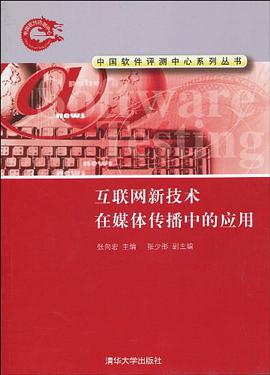

具体描述
This is an ambitious work with some flaws. Darvill (professor of archaeology at Bournemouth University, U.K.) has undertaken a survey of the vocabulary of archaeology in "Europe, the Mediterranean, and English-speaking countries in which archaeology has become an established academic and vocational subject." The work is intended for students, journalists, "and other professionals who have cause to dip into the archaeological literature."
More than 4,000 definitions range from a couple of lines to a two-column page, with most being quite short. Famous archaeologists have brief biographies, usually taken from obituaries or autobiographies, which are noted. Sources, including excavation reports, are also provided for entries on sites. The "Quick Reference Section" at the back of the book contains lists of international archaeological conventions and recommendations; charts of stratigraphic subdivisions in Europe and North America; cultural periods in North America, Mesoamerica, and South America; and lists of Egyptian, Roman, and British rulers.
We found a number of small errors. Flavius Aetius, who defeated Attila, is called Flavours Aetius. Robert Koldewey, who excavated Babylon, is misspelled Koldeway. The Roman poet Martial is listed as Martial, Marcus Valerius, when his full name is Marcus Valerius Martialis. An entry on the Marcomanni says that they annexed Bavaria "in the 6th century BC," instead of in the sixth century A.D.
The Oxford Companion to Archaeology (1996) is a good choice for libraries wanting a more comprehensive, encyclopedic approach. Although it is weakened by some careless mistakes, The Concise Oxford Dictionary of Archaeology is suitable for larger public and academic libraries that need a dictionary of archaeological terms.
作者简介
Darvill (archaeology, Bournemouth Univ.), the author of numerous journal articles and books on ancient Britain, has compiled a useful ready-reference archaeological resource with more than 4000 entries arranged alphabetically and coded by type, e.g., artifact; biographical; cultural phase or period; deity; document; equipment; general term; legal term; material; monument class or category; site, monument, or area of archaeological importance; and technique. This wealth of authoritative information written for the general reader is supplemented with appendixes featuring a list of principal international conventions for the preservation of archaeological and historic sites and artifacts, 1954-93; time lines for the Americas; a chronology of the British Bronze Age; Egyptian dynasties; Roman emperors; and rulers of England to 1066. The form and content are most similar to the out-of-print Facts On File Dictionary of Archaeology (1988), edited by R.D. Whitehouse, but missing its useful subject index, extensive bibliography, and excellent crossreferencing; for instance, Darvill does not refer the user from Hissarlik to Troy, Hattusas to Boghazkoy, or Xi'an to Chang'an. Biographical entries for British monarchs of the 18th and 19th centuries are included while omitting Khufu, Thutmose III, and Hammurabi. Important sites like Abydos, Ebla, and Ugarit are missing. Despite these concerns, this work does fill a current need and is recommended for reference collections not owning the Facts On File publication. Edward K. Werner, St. Lucie Cty. Lib. Syst., Ft. Pierce, FL
目录信息
读后感
评分
评分
评分
评分
用户评价
相关图书
本站所有内容均为互联网搜索引擎提供的公开搜索信息,本站不存储任何数据与内容,任何内容与数据均与本站无关,如有需要请联系相关搜索引擎包括但不限于百度,google,bing,sogou 等
© 2026 onlinetoolsland.com All Rights Reserved. 本本书屋 版权所有




















